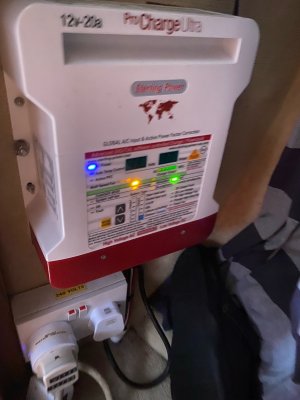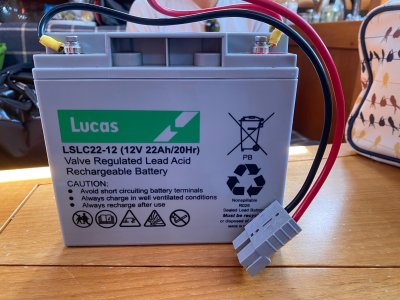AndrewPalmer
New member
I have an inboard fitted Sterling battery charger with three outputs, and charging the engine, domestic and bow thruster batteries. It's a fancy piece of kit, and I understand it is carefully monitoring and charging the three batteries individually as required. I have recently acquired a second hand electric outboard, it's the simple 12V trolling type, not a fancy high powered lithium unit. Rather than bringing a separate battery charger to top up the outboard battery on board, I thought that I would be able to wire it into one of the existing battery charging outputs with an Andersen plug. My thinking was that although the battery characteristics would not the the same as whichever I added it to, the system would just treat it as an extra cell, and recognise the need to start charging and then stop when fully charged. As it would only be connected temporarily I did not see an issue with messing up the longer term automatic charging routine of the inboard battery. I was surprised however that immediately on connecting the extra battery, it blew the inline 10A fuse (I tried again with the same effect).
Can anyone advise what I am doing wrong? Maybe adding another battery in this way is just a complete no no?
Can anyone advise what I am doing wrong? Maybe adding another battery in this way is just a complete no no?


